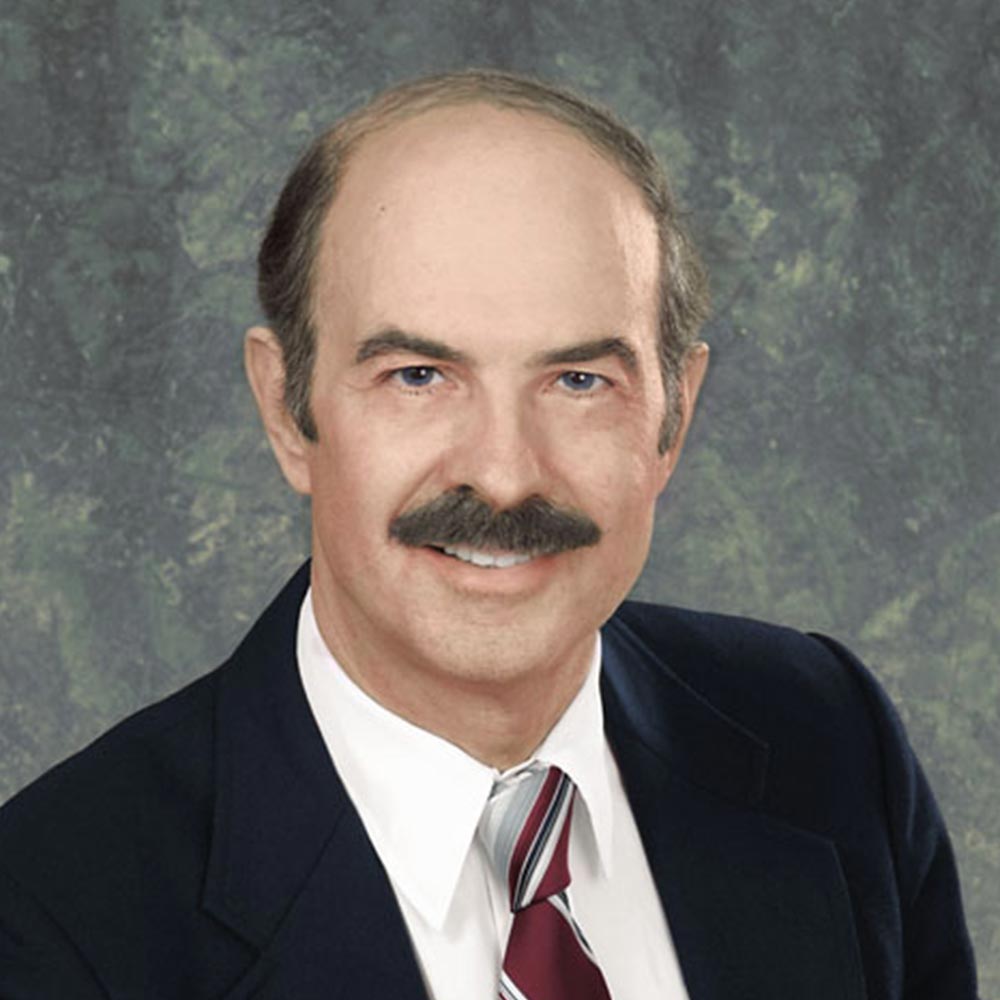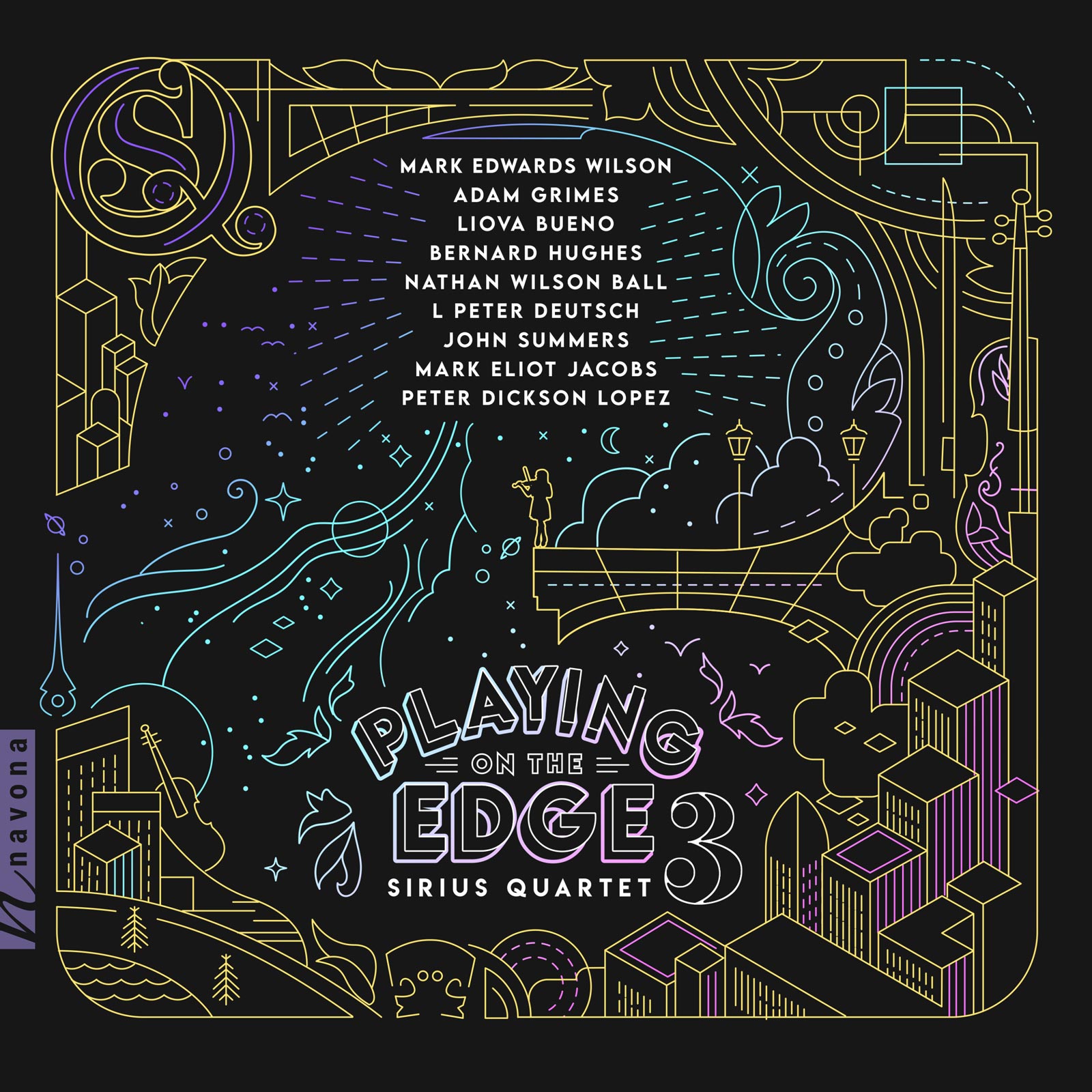
Mark Edwards Wilson, currently a member of the faculty of the University of Maryland, began his productive career in his native California. He studied with Henri Lazarof and Leon Kirchner at the University of California at Los Angeles, where he received a Ph.D. at the age of 25. He has received many prizes, awards, and other honors for his orchestral and vocal works, as well as his chamber music and electro-acoustic compositions, many of which have been commissioned and performed by major institutions and performing organizations.
Wilson’s electro-acoustic Aeolus, for flute, has been given more than a hundred performances by various flutists worldwide, and another electro-acoustic work, Sappho, was given its premiere by the renowned soprano and champion of contemporary music, Phyllis Bryn-Julson, who subsequently recorded it for release on CD.
Most of Wilson’s recent works reflect an emphasis on compositions for orchestra, employing a new approach that he characterizes as “dramatic narrative.” Two scores composed for and introduced by the University of Maryland Symphony Orchestra were premiered under the direction of James Ross and Jose Luis Novo: The Phoenix and the Concerto for Piano and Orchestra with faculty colleague Larissa Dedova, piano. Three commissions by the Long Beach Symphony Orchestra have been premiered by that orchestra: Four Sketches of Notre Dame de Paris, Gethsemane, and Morpheus, the last of which was awarded first prize in the Haubiel New Orchestral Music Competition.
The three-movement work The Phoenix (2009) quickly became one of Wilson’s most successful efforts, taking the Grand Prize in the Realize Music Challenge, an international competition held under the joint sponsorship of Notion Music, Inc., and the London Symphony Orchestra. His fellow composer John Corigliano, who headed the jury for that event, wrote of The Phoenix in a press release:
“Excellent piece. It really develops its materials and has a fine large shape. I felt a true symphonic mind at work. Beautiful orchestration, too. Bravo!”
As part of the prize, The Phoenix was recorded at Abbey Road Studios by the London Symphony Orchestra under Jack Jarrett. Wilson has received numerous other awards for his compositions including the BMI Award, two Maryland State Arts Fellowships, and no fewer than seven Creative and Performing Arts Awards from the University of Maryland.
In 2014 Meteora was awarded first prize in the New Orchestral Repertoire Project, an international competition to foster new music for orchestra sponsored by the Minneapolis Pops Orchestra. The MPO is a summer season orchestra made up primarily of members of the Minnesota Symphony Orchestra and the St. Paul Chamber Orchestra. In addition to a cash prize, the MPO performed Meteora twice in the summer of 2014, with Jere Lantz conducting. Since the recording of The Phoenix by the London Symphony Orchestra, Meteora and The Phoenix together have received a total of 19 additional performances nationwide, including, to mention only a few, four performances as part of the regular season of the Austin Symphony Orchestra, Peter Bay, Music Director; performances by the Washington Metropolitan Philharmonic, Ulysses James, Music Director; the Lansing Symphony Orchestra, and the Chautauqua Music Festival Orchestra, Timothy Muffitt, Music Director.
Recordings of Wilson’s compositions include Windows, on the Neuma label, and on Capstone/PARMA a collection of his works ranging from solo pieces and chamber music to a composition for chamber orchestra, Ancient Ways, in which the Hollywood Chamber Players are conducted by the composer.
Dream-Crossed Twilight, a string quartet commissioned by the Music Teachers’ National Association, was premiered last year by the Left Bank Quartet. A video of their performance (last two movements) can be viewed on YouTube:
II. https://www.youtube.com/watch?v=2D0HIm8jgBU
III. https://www.youtube.com/watch?v=UoR0EQhY9z4
Wilson’s creative emphasis on the orchestra at this point is by no means a matter of chance but is motivated by his enthusiasm for the medium and his concern for its survival. This concern, one might say, has become a stimulus and empowerment for him, as he has stated clearly and frequently:
“Although not all conductors readily perform new works, composers nevertheless must not give up on the orchestra as a medium that is both vital and relevant to a living culture. It would be a tragic loss if the role of the symphony orchestra were to be restricted solely to the musical equivalent of a museum. The talented creative artists who constitute a symphony orchestra should have a purpose beyond that of being curators of the great art of another era. I propose a renaissance in the field of music for symphony orchestra—music that will capture the imagination of audiences—and, in this endeavor, American composers can lead the way.”
— Richard Freed
Albums
Playing on the Edge 3
Catalog Number: NV6520

